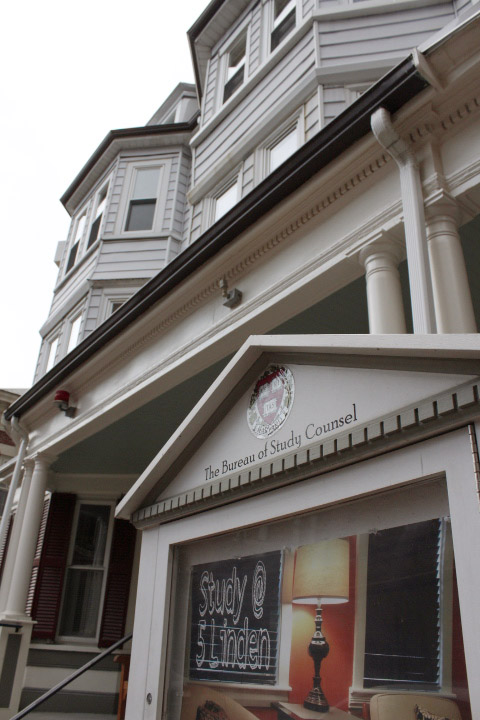
News
News Flash: Memory Shop and Anime Zakka to Open in Harvard Square

News
Harvard Researchers Develop AI-Driven Framework To Study Social Interactions, A Step Forward for Autism Research

News
Harvard Innovation Labs Announces 25 President’s Innovation Challenge Finalists

News
Graduate Student Council To Vote on Meeting Attendance Policy

News
Pop Hits and Politics: At Yardfest, Students Dance to Bedingfield and a Student Band Condemns Trump
BSC Increases Peer Tutor Wages While Reducing Tutoring Fees

Responding to student suggestions and internal review, the Bureau of Study Counsel has increased peer tutor wages and decreased tutoring fees for this academic year.
On-call tutors, who assist students in particular subject areas, will now receive $18 per hour, a raise from last year’s wage of $14 per hour. Award peer tutors, who meet with BSC administrators on a weekly basis in addition to their work tutoring students, will now earn $20 per hour, compared to $16 per hour last year.
The rate charged to tutees will also change this fall, according to BSC Associate Director Sheila M. Reindl. That rate—formerly $7 per hour for the first 10 hours of peer tutoring per course per semester and $14 per hour for tutoring beyond the 10 hours —now will be $7 per hour “with no limit on the number of hours per course or per term,” Reindl wrote in an email.
While the flat rate for tutees will make using the BSC more affordable, the tutor wage raise came in response to a shortage of tutors, Reindl wrote.
“[T]he demand for tutors exceeded supply in several courses and there was a question of whether a higher rate of pay would yield more tutors and greater tutor availability,” Reindl wrote.
Award peer tutors, also raised concerns about the lack of tutors at their weekly meetings with BSC officials, particularly in large General Education classes, former tutor Sietse K. Goffard ’15 said. BSC officials often asked for advice on how to attract more tutors, according to award peer tutor Ahmee K. Marshall-Christensen ’16.
Award peer tutors brainstormed solutions, including departmental-based tutor recruitment, in-person pitches to join the tutoring program, and personalized emails, but those efforts did not fill the demand for tutors, Goffard said.
Marshall-Christensen said peer tutors during discussions cited comparable or less demanding jobs on campus that offered more money, a factor that attracted applicants to those positions. In contrast, he said peer tutors merit higher wages because of how demanding tutoring is.
“You have to be totally present when you’re talking to somebody,” he said.
The peer tutors suggested that the BSC raise tutor wages accordingly.
“By and large, the number one suggestion we had was to increase student wages,” Goffard said. “We thought, at the end of the day, an increase in the tutor wage would definitely be the most effective way to get a sustainable supply of tutors.”
The tutors also plan to make recruitment pitches in several upper-level classes during the first weeks of the semester, said Rebekka E. Depew ’16, another BSC tutor.
—Staff writer Melissa C. Rodman can be reached at melissa.rodman@thecrimson.com. Follow her on Twitter @melissa_rodman.
Want to keep up with breaking news? Subscribe to our email newsletter.
From Our Advertisers

Over 300+ courses at prestigious colleges and universities in the US and UK are at your disposal.

Where you should have gotten your protein since 1998.

Serve as a proctor for Harvard Summer School (HSS) students, either in the Secondary School Program (SSP), General Program (GP), or Pre-College Program.

With an increasingly competitive Law School admissions process, it's important to understand what makes an applicant stand out.

Welcome to your one-stop gifting destination for men and women—it's like your neighborhood holiday shop, but way cooler.

HUSL seeks to create and empower a community of students who are seeking pathways into the Sports Business Industry.
